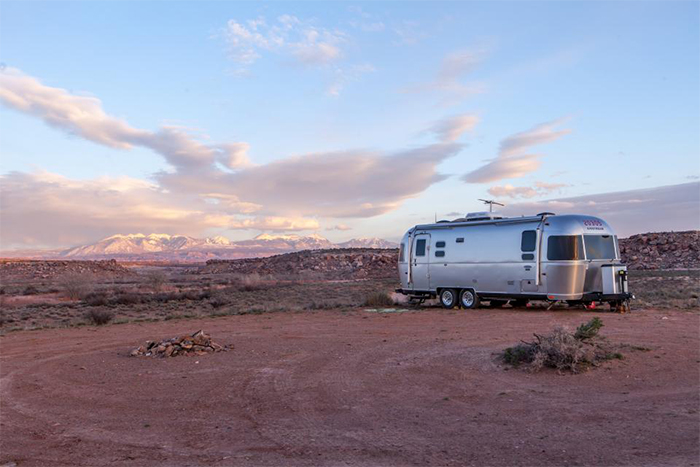Want to Live in Your RV? Consider These 2 Factors First

For many retirees, the idea of ditching their traditional brick-and-mortar home and living full-time in a recreational vehicle sounds like a dream come true. This is often the case for people who have spent their lives in a northern climate and want the added freedom that comes with residing in a warmer region.
Rather than spending their free time mowing the lawn and shoveling snow, full-time RV residents experience liberation from many homeowner chores, respite from cold and miserable winters, and the opportunity to explore the rest of the United States. Before you just buy an RV and hit the open road, however, you need to address two primary concerns.
1. Where Will You Live?
While you are likely anxious to get started on your new nomadic RV lifestyle, the government will not allow you to just travel aimlessly for long. You must have a state of legal domicile in order to have a driver’s license; insure your vehicles, property, health, and life; secure the right to vote; fulfill jury duty obligations; receive mail; and enjoy and fulfill other rights and responsibilities, such as reduced residence rates or taxes.
To become domiciled, most states require you actually live in your chosen state for at least 183 days. For example, Florida is a popular choice for retirees to set up their domicile. In addition to warm weather, Florida has the highest rate of retirees in the United States, which means you’ll find plenty of like-minded people and services geared towards the changing needs of seniors.
Perhaps most importantly, Florida doesn’t have a personal income tax. For seniors who are on a fixed income, their social security checks and pensions can go a lot further than they would in a high tax state.
Regardless of where you choose to set up your permanent domicile, be sure to carefully consider not only the tax implications but other factors as well, such as the cost of living. You may want to schedule an appointment with an attorney to ensure you aren’t overlooking anything important before setting up your domicile.
2. Do You Have the Right Kind of Insurance?
Before making the decision to live in their RV full-time, most people have previous part-time experience in their recreational vehicle. But making the change from spending the weekend each summer in an RV and living in it full-time rather than a house can dramatically change your insurance needs.
Additionally, the type of recreational vehicle you own can also determine your insurance needs. For example, if you have a motorhome recreational vehicle — one that you drive rather than tow — you will typically need liability insurance, as you would with a personal vehicle. If you have a loan on your motorhome, the lender will also likely require you to have comprehensive and collision coverage as well.
When you have a recreational vehicle that you only use for vacations, the loss of your personal items is often covered under your homeowner’s insurance policy. When you make the decision to sell your home and use your recreational vehicle as your primary abode, you will need to secure a new policy that will cover your belongings in the event of fire, theft, or other type of loss. Like a homeowner’s policy, you should seek a policy that also covers medical expenses if someone is injured on your property.
Another consideration is how much coverage you require. When your recreational vehicle is also your home, it is best to opt for total loss replacement coverage rather than an estimated value. Ideally, you need to have enough coverage that if something catastrophic happened, you could easily replace your recreational vehicle home and get back on the road again.
The domicile state you choose, the age and type of recreational vehicle, your driving and claims history, and the level of coverage you need are just a few factors that will determine your premiums. Before making the decision to live in an RV full-time, contact us first to explore all your insurance needs.
